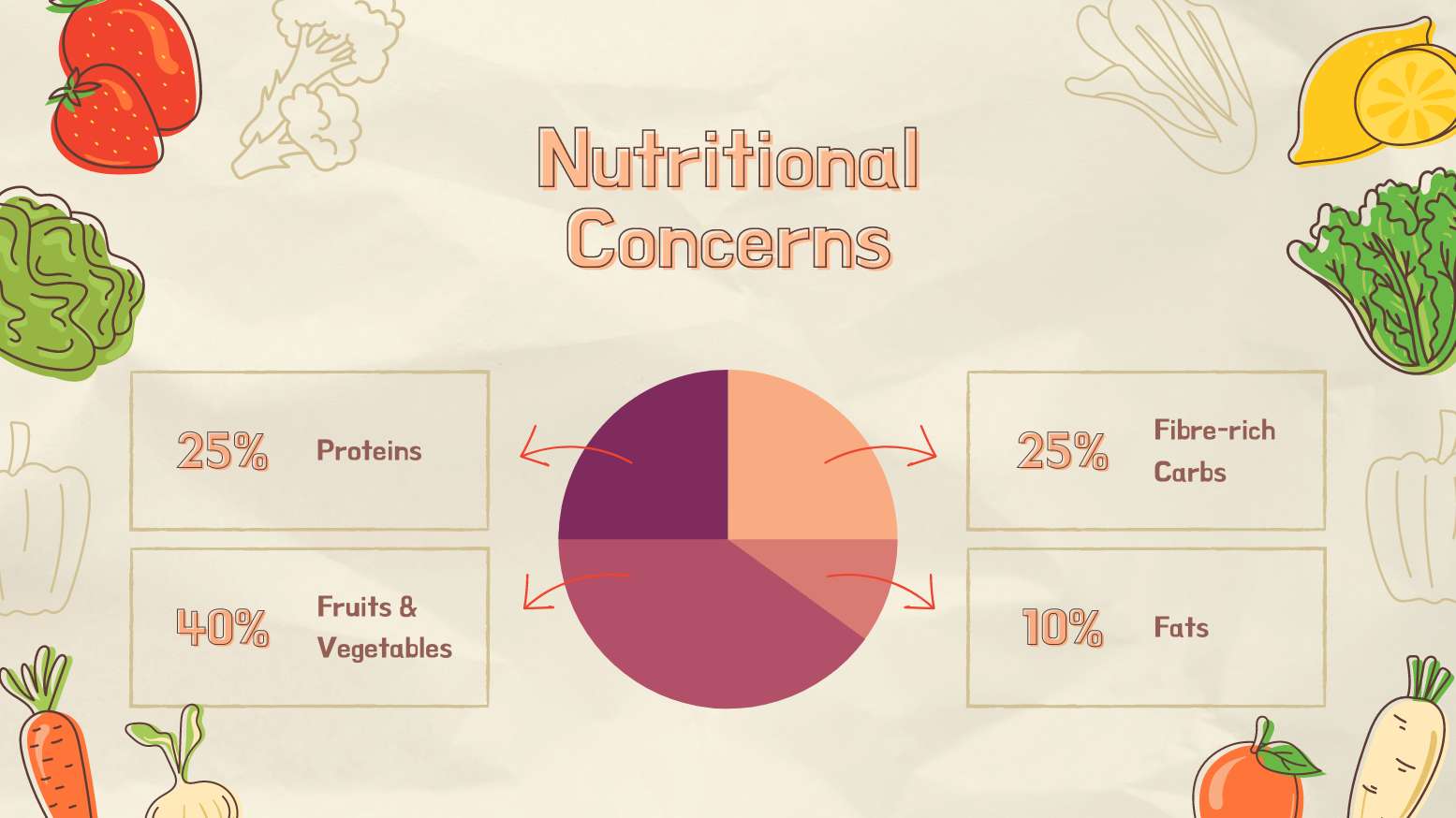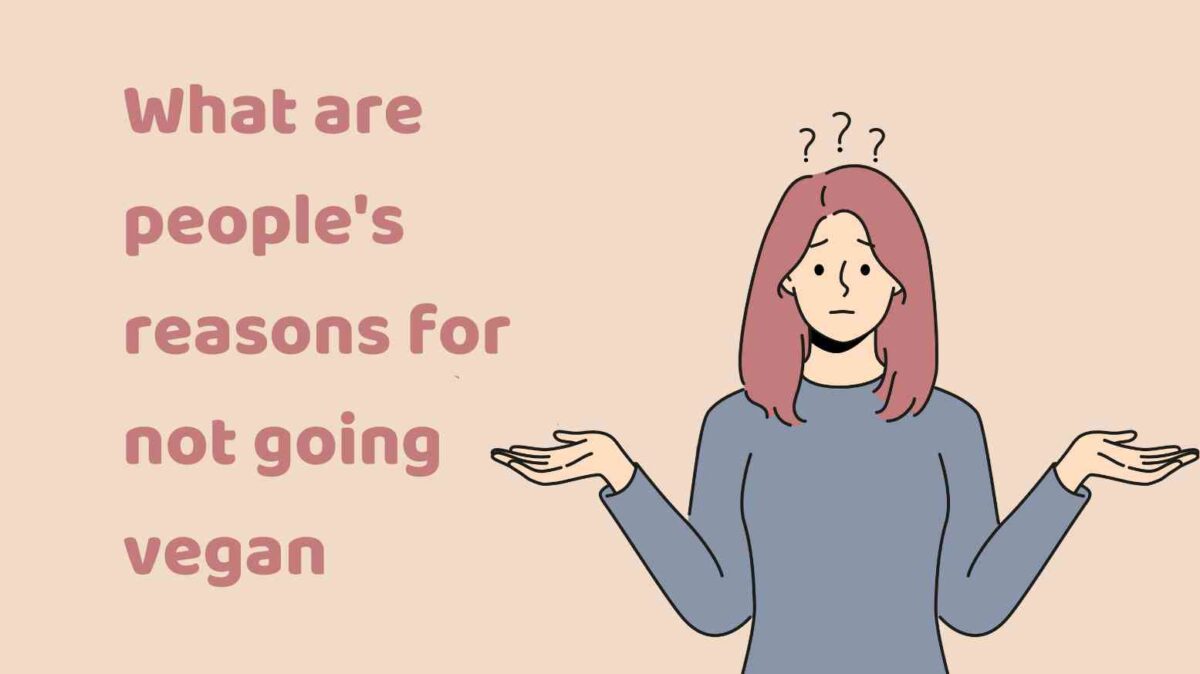Plant-based diets have become increasingly popular at a time when people are becoming more conscious of moral, environmental, and health issues. But even if veganism is becoming more and more popular, many people still decide against adopting this dietary preference.
It is essential to comprehend their rationale for making these choices to facilitate educated dialogue and advance compassionate plant-based living. Here, we explore what are people’s reasons for not going vegan and the typical obstacles people face while following a vegan diet.
Nutritional Concerns

A common myth that discourages people from adopting a vegan diet is the worry about not getting enough nutrients. Misinformation regarding protein deficit continues to drive concerns.
As it happens, plant-based sources of protein include nuts, tofu, lentils, and tempeh. Furthermore, vegans must take vitamin B12 supplements, however, these can be easily obtained via fortified meals and supplements.
The myth that a vegan diet lacks nourishment is dispelled by the abundance of calcium and iron, two essential elements that are frequently linked to animal products. These nutrients may be found in whole grains, fortified plant milk, and dark leafy greens.
Taste and Social Factors

One major hurdle that still exists is the belief that vegan food is bland and unvarnished. Some people think that vegan meat substitutes can never truly capture the flavor and texture of real meat.
But as taste adaptation and the availability of mouthwatering plant-based substitutes have shown, there are plenty of tasty vegan options available.
Adoption of veganism is also hampered by social inconvenience. There may be fewer food alternatives while dining out with relatives or friends who are not vegans, which could lead to awkward situations. But things are shifting quickly; a lot of eateries are now providing a wide range of vegan options. The difficulties of managing social gatherings as a vegan can be lessened with careful preparation and honest communication.
People are sometimes deterred from adopting veganism by perceived social pressure because they believe it to be restrictive or judgmental. To overcome this obstacle, veganism must be shown as an inclusive lifestyle option and preconceptions must be dispelled through open dialogue and education.
Practical Considerations
One of the main arguments against being vegan is cost. On the other hand, basic vegan foods like fruits, vegetables, and grains can be reasonably priced. Financial worries can be addressed by careful planning, using inexpensive recipes, and realizing how cost-effective a plant-based diet can be.
Another practical factor is accessibility, particularly in rural locations. The supply of plant-based products is continuously rising, despite ongoing challenges. Veganism is now more accessible even in areas with few options thanks to the advice and encouragement provided by supporting communities and online tools.
Others see time and culinary proficiency as limitations. But becoming vegan doesn’t mean you have to create elaborate meals. Meal planning, using readily available ingredients, and experimenting with quick recipes can help overcome time constraints and make veganism a viable option for those with different levels of culinary expertise.
Even as veganism continues to gain popularity, it’s important to acknowledge and comprehend the reasons why some people choose not to follow the vegan diet. These choices are influenced by a variety of elements, including social dynamics, taste perceptions, practical considerations, and nutritional concerns.
A more inclusive approach to plant-based living can accommodate the various needs and motivations of people on their journey towards a more compassionate and sustainable lifestyle by promoting educated conversations, busting myths, and offering assistance.
You may also like:
- What is the difference between a vegan and a vegetarian
- Why should a person go vegan
- What are the downsides of having a vegan lifestyle
FAQs
1. Why do some people believe that a vegan diet lacks proper nutrition?
Nutritional concerns often stem from misconceptions about protein deficiency in vegan diets. However, plant-based sources like nuts, tofu, lentils, and tempeh provide ample protein. Additionally, fortified meals and supplements address nutritional needs such as vitamin B12, calcium, and iron.
2. Is the perception of vegan food being bland and unappetizing still a common obstacle?
Yes, the belief that vegan food lacks flavor persists. However, taste adaptation and the availability of delicious plant-based substitutes challenge this notion, demonstrating that there are numerous tasty vegan options.
3. How does social inconvenience hinder the adoption of veganism?
Social inconvenience arises when dining out with non-vegan friends or family, leading to limited food options and potentially awkward situations. However, many restaurants now offer diverse vegan choices, and careful planning and communication can ease these challenges.
4. What role does perceived social pressure play in discouraging people from going vegan?
Some individuals perceive veganism as restrictive or judgmental, contributing to their reluctance to adopt this lifestyle. To overcome this obstacle, veganism must be portrayed as an inclusive option, and preconceptions should be dispelled through open dialogue and education.
5. Why is cost often cited as an argument against adopting a vegan lifestyle?
Cost concerns arise from the misconception that veganism is expensive. However, basic vegan foods like fruits, vegetables, and grains are reasonably priced. Careful planning, using inexpensive recipes, and understanding the cost-effectiveness of a plant-based diet can address financial worries.
6. How does accessibility impact the decision to go vegan, especially in rural areas?
Accessibility is a practical consideration, particularly in rural locations. Despite challenges, the availability of plant-based products is increasing. Supportive communities and online resources offer guidance, making veganism more accessible even in areas with limited options.
7. Are time and culinary proficiency perceived as limitations to adopting a vegan lifestyle?
Yes, some individuals view time and culinary skills as barriers to going vegan. However, veganism doesn’t require elaborate meals. Meal planning, using readily available ingredients, and experimenting with quick recipes can overcome time constraints, making veganism a viable option for individuals with varying levels of culinary expertise.

